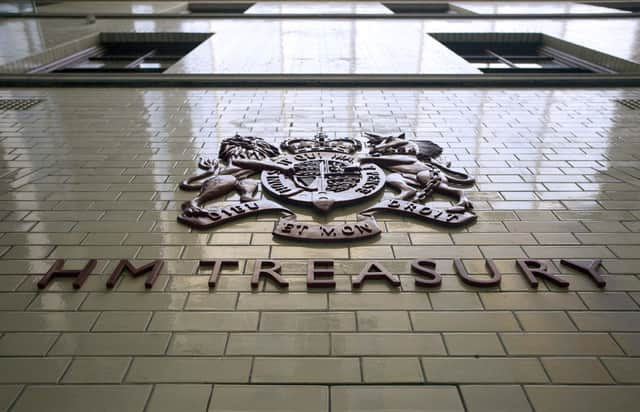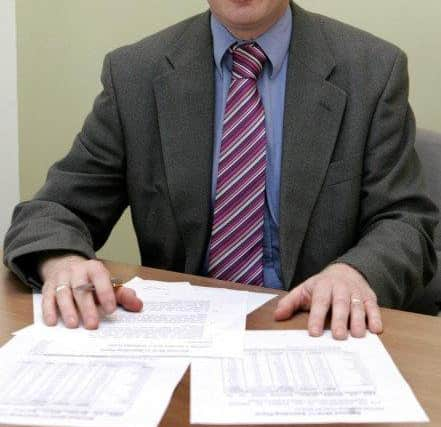Economist: London cannot realistically write cheques for unfunded public spending demands in Northern Ireland


About £1.74 billion by the devolved departments and at least £465 million of spending in NI related to UK-wide measures (eg welfare benefits) plus a still unquantified sum relating to the Job Retention scheme.
Thus, a total spend of over £2bn.
To put that into perspective ‘normal’ day to day spending by the NI departments is about £10bn plus another roughly £1.5bn on capital projects each year.
Advertisement
Hide AdAdvertisement
Hide Ad

Given that the amount of money (Barnett consequentials) committed by the UK government to Stormont has been £2.2bn and given that about £465m of the Covid response in NI was funded through allocating existing budgets this implies that the executive has yet to decide how it will deploy a very sizeable amount of money.
The NIAO report does not try to measure value for money effectiveness of the Covid spending so far. No doubt that analysis will follow.
NIAO indicate that some of the spending on the economy was issued through ministerial directions — by ministerial decision without the normal justification of business case evidence.
In the urgent special conditions of Covid this approach was probably justifiable but as we hopefully return to normal value for money considerations will have to be applied with their usual rigour.
Advertisement
Hide AdAdvertisement
Hide AdUnfortunately, Covid has only added to the huge problems facing the public spending system in NI.
It is now clear, with the impact of Covid, that the fiscal shortfall between the spending ambitions in January’s New Decade New Approach and funding reality was much larger than the intitial £5 billion estimate.
A host of government departments, public bodies, local councils, public corporations and educational and health institutions have moved into even deeper financial deficits since March.
Entirely unforeseen demands on public expenditure have arisen.
Advertisement
Hide AdAdvertisement
Hide AdIt would be unrealistic to expect the London government which is facing a fiscal deficit of £300bn to write cheques to deal with all the unfunded demands for public expenditure in NI.
Without fundamental change in the way we raise and use public money, the NI executive could face a chronic reliance on ‘outside’ financial ‘aid,’ which may itself be a cause of under-performance in the Northern Ireland private sector and reduce quality of decision making by policy makers.
One reason devolution was unstable 2007-2017 was disagreement about use of public money such as whether to introduce welfare reform and management of the Renewable Heat Incentive (RHI) scheme.
There are certainly some things which could and should be done:
• Much tighter priority setting.
Advertisement
Hide AdAdvertisement
Hide Ad• As the NI Audit Office has suggested in 2019, manage major public procurement projects much better.
• Revenue raising — this is partly but only partly about domestic water charges.
• Apply the various suggestions within the New Decade New Approach document to improve the stewardship of public funds in NI: it is unclear whether such measures are being worked on under the radar or have they been delayed because of the virus”.
• Dr Esmond Birnie is senior economist at Ulster University Business School
——— ———
A message from the Editor:
Advertisement
Hide AdAdvertisement
Hide AdThank you for reading this story on our website. While I have your attention, I also have an important request to make of you.
With the coronavirus lockdown having a major impact on many of our advertisers — and consequently the revenue we receive — we are more reliant than ever on you taking out a digital subscription.
Subscribe to newsletter.co.uk and enjoy unlimited access to the best Northern Ireland and UK news and information online and on our app. With a digital subscription, you can read more than 5 articles, see fewer ads, enjoy faster load times, and get access to exclusive newsletters and content. Visit https://www.newsletter.co.uk/subscriptions now to sign up.
Our journalism costs money and we rely on advertising, print and digital revenues to help to support them. By supporting us, we are able to support you in providing trusted, fact-checked content for this website.
Alistair Bushe
Editor